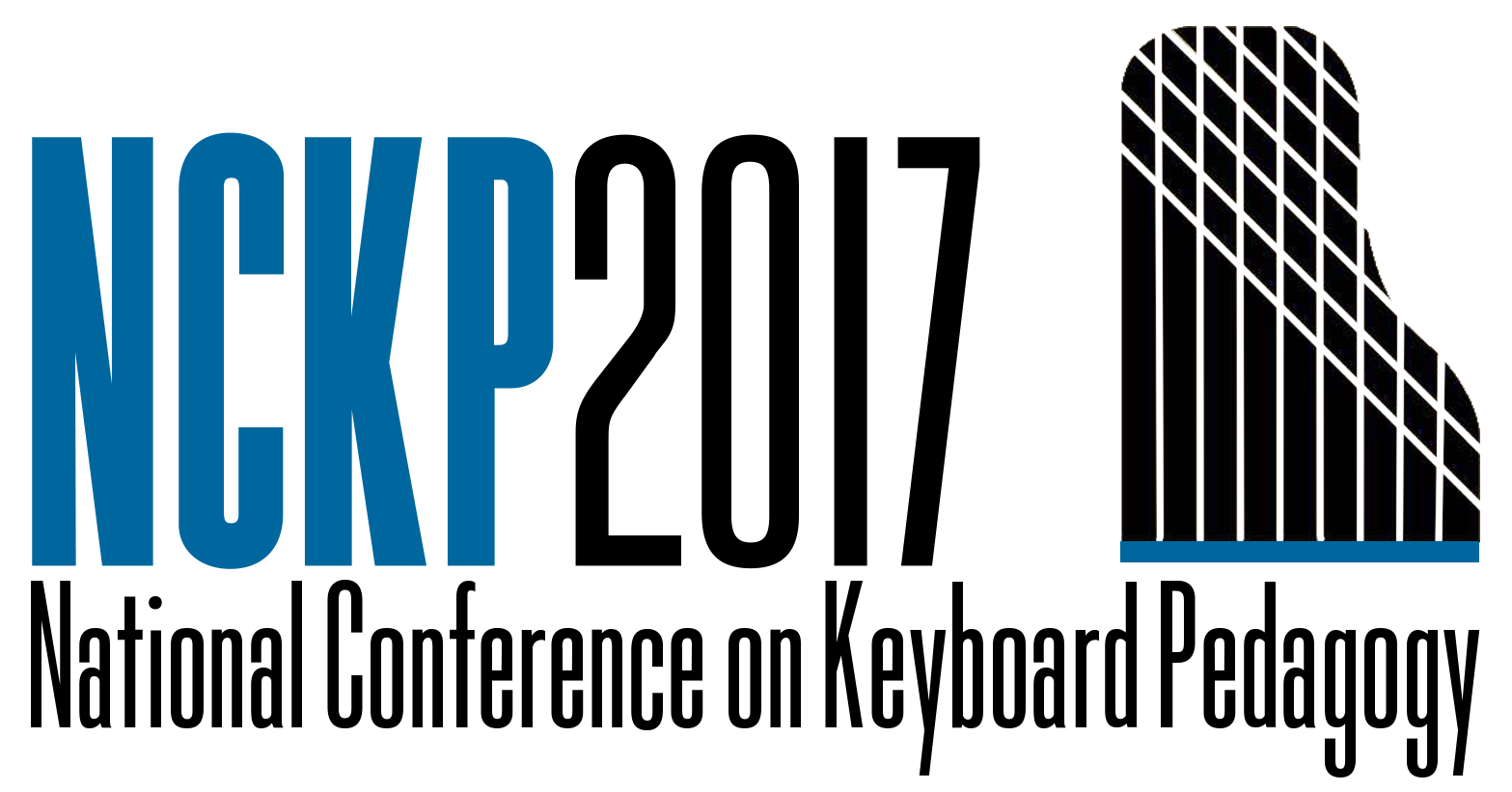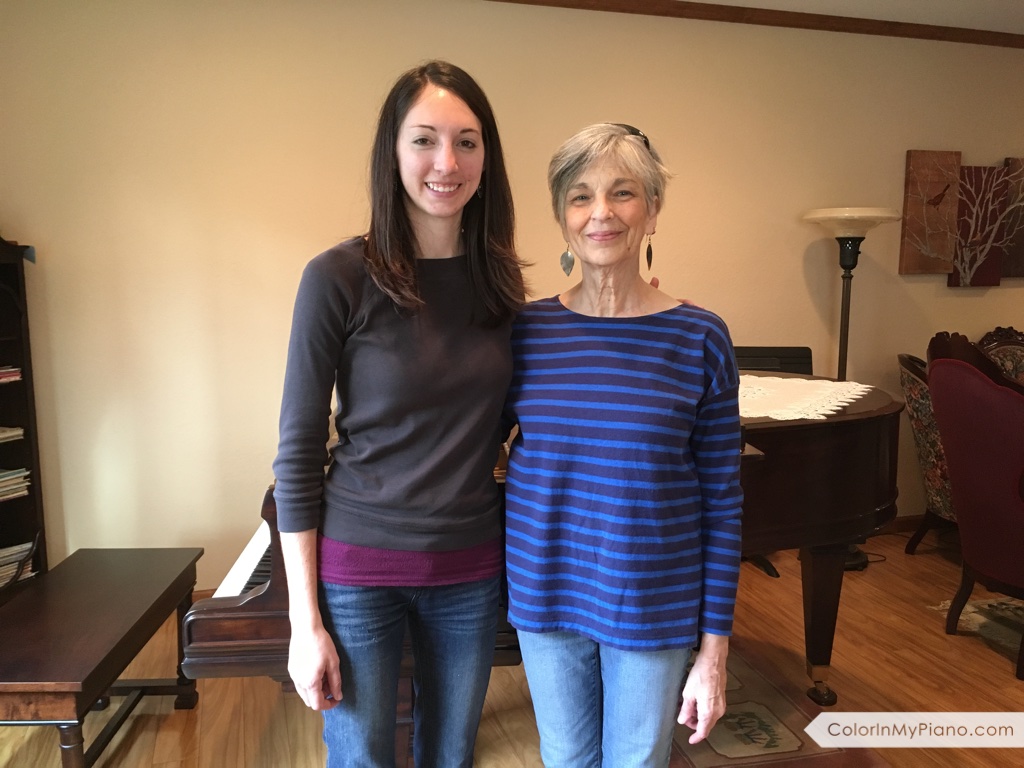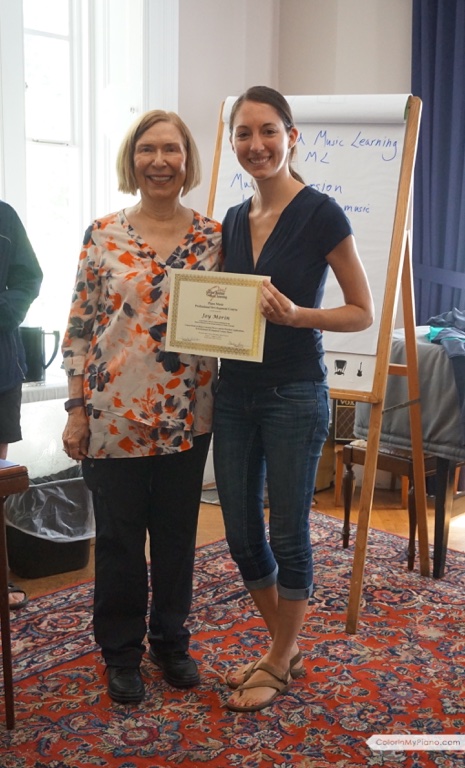Two weeks ago, I attended a two-day seminar called, Managing Ourselves, hosted by a business known well here in Ann Arbor, Michigan called Zingerman’s Community of Businesses (or, ZCOB, as they are fond to say). I had a great time at this seminar, and am excited to share few highlights and takeaways with you!
Continue reading “Zingerman’s ZingTrain Workshop: “Managing Ourselves””Category: Professional Development
2024 Piano Level 2 Certification through the Gordon Institute for Music Learning
Two days ago was the wrap-up of a Piano Level 2 Professional Development Levels Course (PDLC) through the Gordon Institute for Music Learning held at Eastern Michigan University, just 20 minutes from my home. It was such a great experience, and my heart is full.
We started each morning with Musicianship Time with Natasha Sigmund, GIML faculty member in Early Childhood Music.
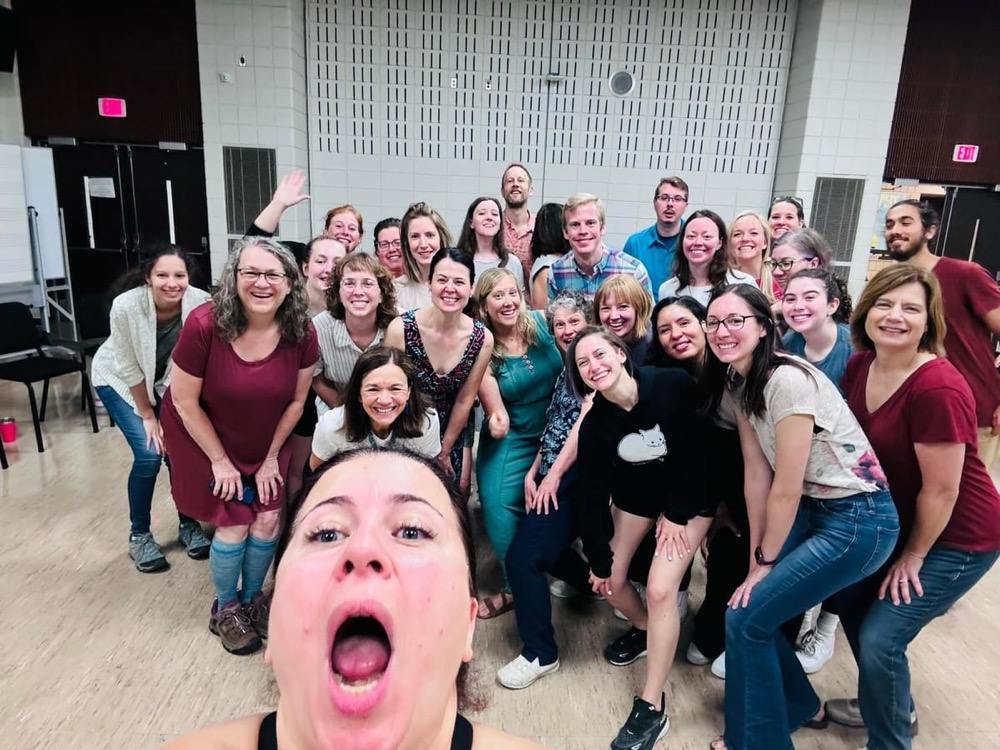
Announcing: My 2024 Piano Teacher Retreat
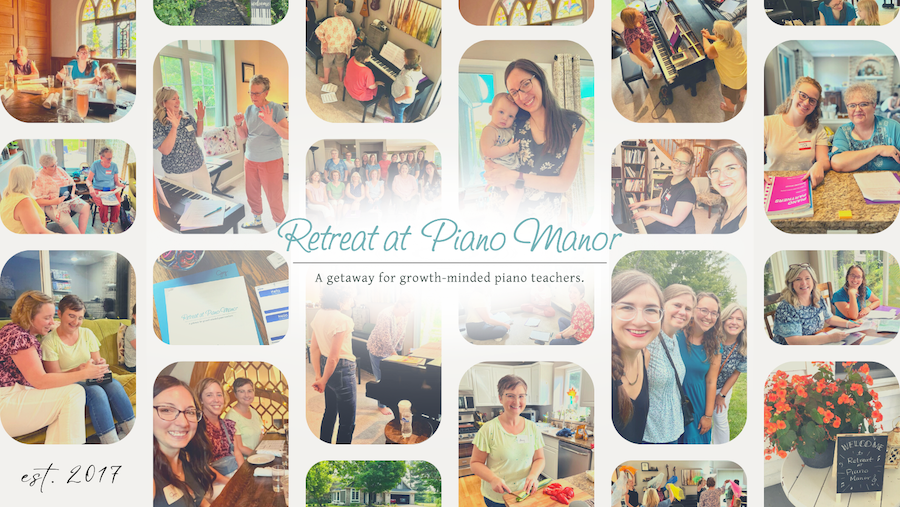
Hello friends,
Recently, I have received a handful of email inquiries asking for updates about my 2024 Piano Teacher Retreat. So I thought I should at least send out a quick blog post here now that the details are finally coming together!
(By the way, in case you want to learn more about my past retreats, here’s a recap post about the 2023 Piano Teacher Retreat you can check out!)
I’m pleased to announce the dates for my 2024 retreat:

Both retreat offerings will be held here in the Southeast Michigan area – just outside the wonderful town of Ann Arbor and about a 30- to 45-minute-drive from the Detroit Airport.
Every year, I choose a theme for my retreat — something I’m interested and passionate about and think would make a great topic for us to explore in large and small group discussions and activities. Here is this year’s theme:
2024 Piano Teacher Retreat Theme:
EXPLORING IMPROVISATION AND COMPOSITION IN PIANO LESSONS
Together, let’s strive to expand the role of creativity in the piano lessons we teach. During this retreat, we’ll explore ways to guide young pianists to compose their own pieces, make their own improvisational changes to existing pieces, and create new music using what they know — including rhythm patterns, tonal patterns, and/or harmonic progressions. During group discussion and activities with fellow piano teachers, you can expect to engage in important conversations about creativity and MLT (Music Learning Theory), discover composition/improvisation resources your students will enjoy, and experience the joy of creativity in a variety of forms for yourself!
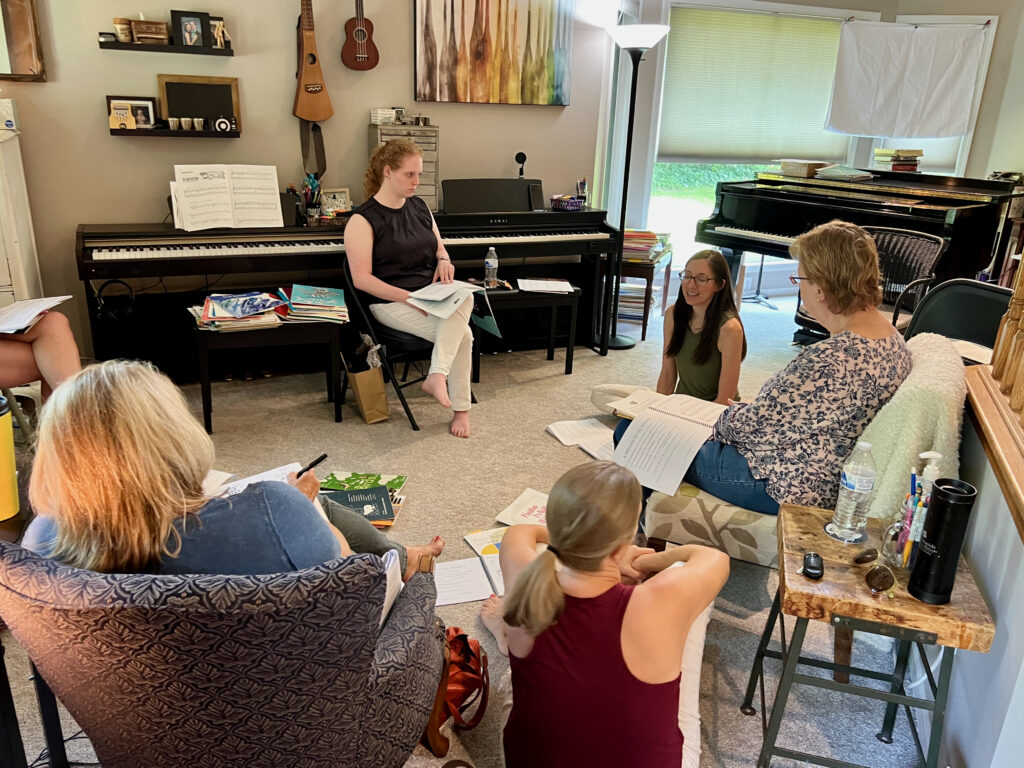
If you are looking for a professional development opportunity for this summer, I hope you’ll consider my retreat. This unique, small-group getaway experience is designed in every way to rejuvenate you and your teaching.
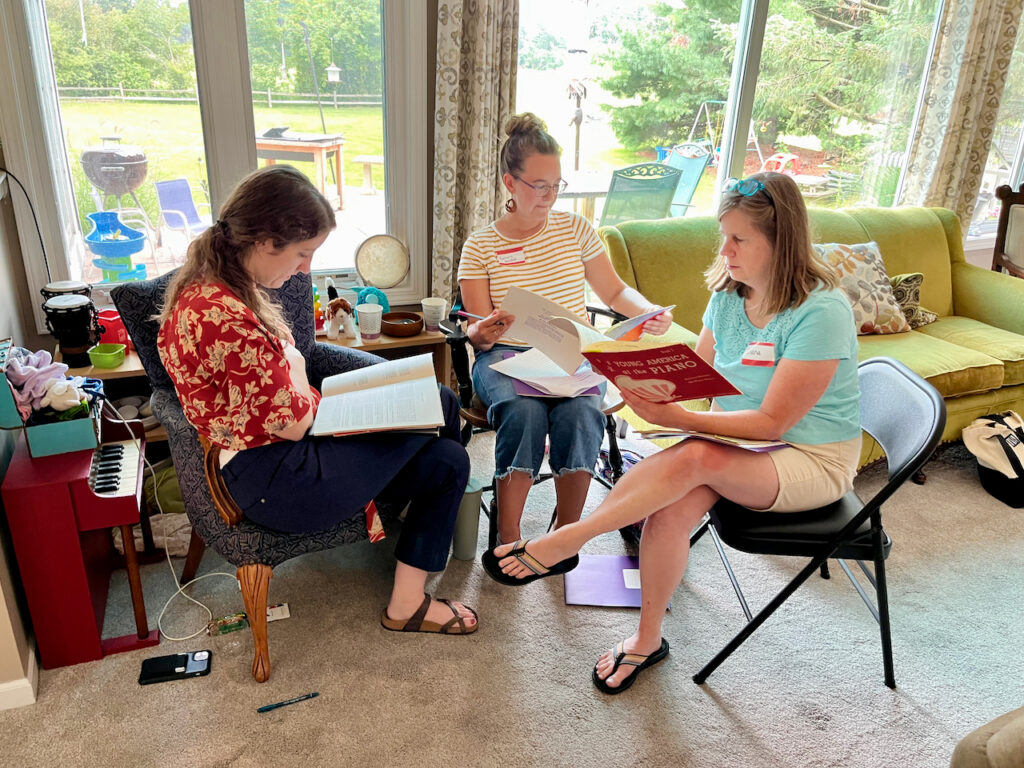
I will be sending out the event details to my separate “retreat” email list (so that I don’t spam everyone here). If you’d like to learn more, please join with your email address HERE. I’m very excited to share the full details with you very soon!
Would love to spend time with YOU this summer!
What We Can Learn From Considering One’s Ideal Piano Teacher Life
Last week, I asked: If you could somehow magically have the life of your dreams, what would your piano teacher life look like?
(Read the entire prompt here.)
Thank you for the responses you posted, both here on the blog as well as on facebook. I enjoyed reading them.
I pondered the questions myself, and even did a little bit of journaling on the topic. I found it very beneficial, and want to share some of my realizations with you. If you found it fun to ponder the previous set of questions, I’d like to invite you to join me in exploring the additional questions below.
As I journaled about my ideal piano teacher life, I realized I’m already doing many of the things that I would consider part of my dream life as a piano teacher. What a wonderful reminder: I’m already living the dream! At times, I need reminders to count my blessings and take nothing for granted.
As you consider your own ideal piano teacher life, ask yourself: Which of these things am I already doing?
I’m happy with my current teaching schedule. There isn’t much I’d want to change about my teaching space. I’m happy to have a career I enjoy so much. I have much to be thankful for.
As you recall, the original prompt encouraged us to think big: If you could somehow magically have the piano teacher life of your dream, what would it look like?
I hope you journaled at least one thing that was completely outrageous. 🙂 Continue reading “What We Can Learn From Considering One’s Ideal Piano Teacher Life”
Question: What would your dream piano teacher life look like?
 Today, I have a thought experiment to present to you. If you could somehow magically have the life of your dreams, what would your piano teacher life look like?
Today, I have a thought experiment to present to you. If you could somehow magically have the life of your dreams, what would your piano teacher life look like?
Let’s get really specific. Feel free to dream big here, folks!
- What would your schedule look like? On which days would you teach lessons? What time would you start and end your teaching day?
- What would your teaching space look like? Where would you teach: in-home, or at another location? What would your studio space look like? What piano would you have?
- How much money would you make? What would you do MORE of and what would you do LESS of, for yourself as a professional and for your clients as your students? Be extravagant!
- What would your students be like? What skills would they develop under your tutelage? What pitfalls would they avoid under your tutelage? Would you teach one-on-one, partner lessons, or group lessons? How often would you see your students?
Please share in the comment section below. I can’t wait to read your responses and talk about them further with you.
2017 NCKP and Other Upcoming Events
Hello, friends!
Any of you heading to the 2017 National Conference on Keyboard Pedagogy in Lombard, IL? I’m heading out tomorrow and am looking forward to long weekend full of fun and learning.

I will be participating during a session as one of the panelists on a session called “Carving Out Your Career Path” at 2:30pm during the Young Professionals Track tomorrow (Wednesday). Maybe I’ll see you there!
After NCKP is over, my conference buddy Amy Chaplin and I are staying in the Chicago area to attend the Gordon Institute for Music Learning (GIML) conference a few days later. This is the first time either of us have attended this conference, so we are looking forward to seeing what it’s like.
In other news, I thought I’d also list some upcoming presentations I’ve been adding to my calendar recently. If you happen to live in Ohio, Indiana, Michigan, or Kentucky, I’d like to invite you to join me. I’d be happy to send you more details about these events upon request.
- F, September 8, 2017: “Teaching the Way We Learn: Applications of Gordon’s Music Learning Theory for Piano Teachers.” Wood-Ottawa Counties MTA (Bowling Green, OH).
- F, September 29, 2017: “Teaching the Way We Learn: First Applications of Gordon’s Music Learning Theory” with co-presenter Amy Chaplin. IndianaMTA state conference (Marion, IN).
- Th, October 12, 2017: “Grounded in the Beat: Cultivating the Seeds of Rhythmic Fluency.” OhioMTA State Conference (Niswonger Performing Arts Center in Van Wert, OH).
- M, November 6, 2017: “Teaching the Way We Learn: First Applications of Gordon’s Music Learning Theory” with co-presenter Amy Chaplin. KentuckyMTA state conference (Lexington, KY).
- F, November 10, 2017: “Alexander Technique for Piano Teachers & Students.” Northeast Indiana MTA (Fort Wayne, IN).
- F, December 8, 2017: “App-Laudable Uses of Apps in Music Lessons.” Grand Rapids Piano Teachers Forum (Grand Rapids, MI).
- F, April 6, 2018: “Piano Method Mining: Uncovering Nuggets of Wisdom in Method Books.” Western Reserve MTA (Cleveland, OH).
You can find my full calendar here, and my list of workshop topics here.
Video: Let’s Talk about John Thompson’s “Teaching Little Fingers To Play”
Hi there!
Earlier today, I went live on Facebook to talk about one of my favorite old piano method books: the classic John Thompson’s Modern Course for the Piano. I have to admit certain bias for the “Teaching Little Fingers to Play” book. It was my first piano book when I was all of age 5. 🙂
Here is the Facebook Live video.
https://www.facebook.com/ColorInMyPianoblog/videos/1557903900896256/
Here is what’s covered in the video:
- 0:50 Get a peek inside an OLD copy of the “Teaching Little Fingers To Play” book by John Thompson.
- 2:10 Why I like using the “Teaching Little Fingers” book sometimes today as a supplement.
- 3:05 Get a peek inside a NEW copy of the “Teaching Little Fingers” book. The illustrations have been updated, but the version is otherwise pretty true to the original.
- 3:35 How to address one of the potential pitfalls of using the “Teaching Little Fingers” book: the overabundance of finger numbers.
- 4:47 How John Thompson was ahead of his time as a pedagogue. Or, perhaps there is really just “nothing new under the sun.” 🙂 Hint: See the note on the cover of the “Teaching Little Fingers” book.
- 7:04 Learn more about other music and resources John Thompson authored.
Questions for you: Have you ever used the John Thompson series? What do you appreciate about it?
Thanks for watching!
P.S.: Why am I looking through old piano method books? It’s because I’m in the midst of preparations for Retreat at Piano Manor which I will be hosting later this summer, August 17-19, 2017! During the retreat, we will be looking through piano method books from across the decades, uncovering pedagogical wisdom relevant for us today. Registration is now open and a few teachers have already registered. Be sure to watch the facebook page and here on the blog for future videos about piano methods.
Announcing: Piano Teacher Retreat, August 17-19, 2017
Hello, friends!
I’m very excited to invite you to attend a retreat for piano teachers taking place at my home studio this summer.


Retreat at Piano Manor is a three-day getaway for piano teachers to connect, recharge, share, and learn from each another. During this unique experience, you will have opportunity to contribute and benefit from collective wisdom during group discussions, projects, and even relaxing downtime. While at “Piano Manor,” you’ll also enjoy deliciously healthy food planned by my foodie friend, Amy Chaplin of PianoPantry.com. Retreat at Piano Manor will leave you feeling inspired and connected, with newly formed friendships and fresh ideas for your teaching.
Our topic of focus is Piano Method Mining: Uncovering Nuggets of Wisdom From Method Books. I’ll be sharing more details very soon about what we will do during our group retreat experience.
Retreat at Piano Manor is happening August 17-19, 2017, at my home studio in northwest Ohio. I hope you’ll consider being a part of this!
More details are available at: pianoteacherretreat.com. The full schedule and registration will be posted soon. In the meantime, be sure to join the email list to receive details in your inbox as they become available.
Thanks for reading!
Why I Take Lessons in the Alexander Technique as a Piano Teacher
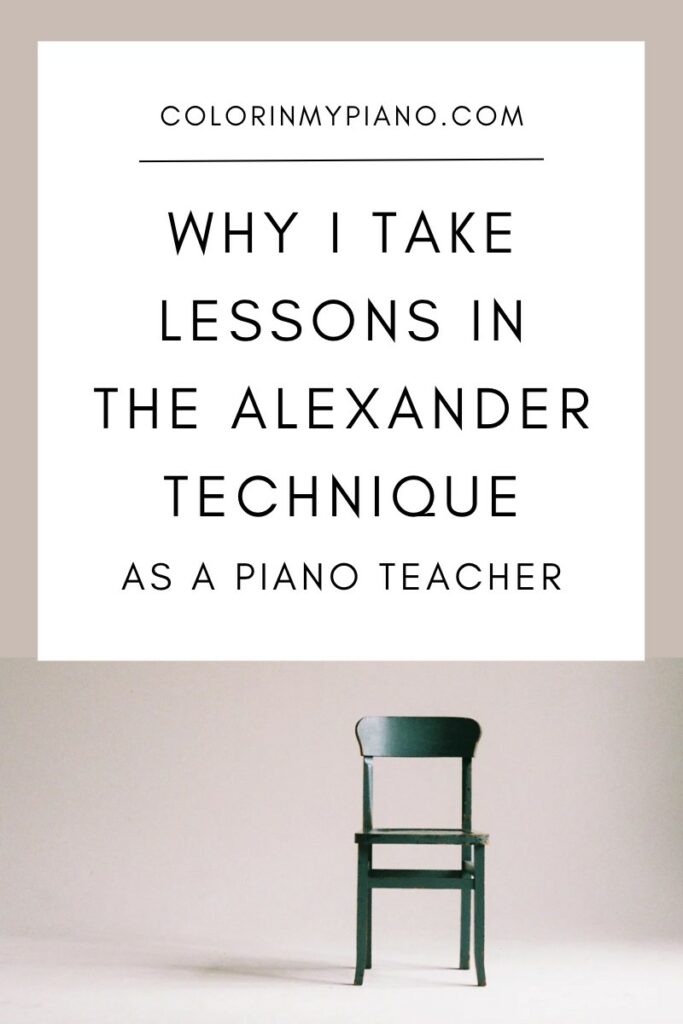
In Spring of 2015, a fellow piano teacher and I were having a conversation during which she told me how much she has benefited from taking Alexander Technique lessons in the past. She spoke so highly of the experience, stating that everyone — not just musicians — should consider taking at least three months of Alexander lessons. In fact, she told me I was lucky in that there is an Alexander Technique teacher in my area, because there isn’t one in the major city where she currently lives.
Her enthusiasm intrigued me, as did her bold statement regarding the benefits of the Alexander Technique. So, I decided to follow her suggestion to take lessons for three months, just to satisfy my curiosity.
As of this writing, I’ve been taking Alexander Technique lessons for over a year-and-a-half. I’m completely hooked, and I have no intentions of stopping lessons anytime soon.
The Alexander Technique’s way of looking at all movement in life — not just “posture”, and not just one’s physical approach to the piano — has been revolutionary for me. It changes the way I move and the way I think about moving as I go about each day. I see things differently in other people, too — I recognize unique tendencies and movement patterns in others, including my piano students.
In this blog post, I’m going to share with you:
- What the Alexander Technique is.
- What a typical lesson in the Alexander Technique is like.
- How users of the Alexander Technique think differently about movement.
- The potential the Alexander Technique has to help pianists and piano teachers.
- Takeaways for piano teachers reading this article.
What is the Alexander Technique?
The Alexander Technique is sometimes referred to as “the AT” or “the Technique”.
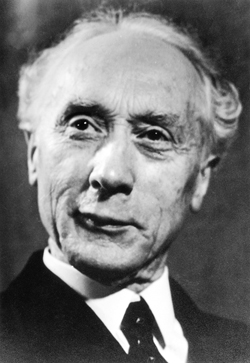
“The Alexander Technique is a subtle method of integrating mind and body in such a way that each functions with maximum efficiency and ease and minimum stress and tension. The Technique is an educational process, which provides an individual with the means to identify and change habits and attitudes interfering with ‘the proper use of oneself.’
“The Technique was developed in the late 19th century by F.M. Alexander [1869-1955], a Shakespearean orator. Having lost his voice, Alexander undertook an intensive program of self-
The Alexander Technique is useful not only for musicians. Nor is it useful only for individuals experiencing carpal tunnel, back pain, or other difficulties. It is sought out by speakers, athletes, actors, dancers, public speakers, and — in short — anyone interested in personal development and improving performance ability.
Individuals who use the AT pay increased attention to their bodies as they move in their everyday lives. They learn to recognize less-than-optimal habitual patterns and strive to “not do” them. This activity of “not doing” is referred to as “inhibition.”

Perhaps most importantly:
Practitioners of the AT recognize that there is no existence of a “correct position”; there is only the possibility of “good use” in activity. The goal is ease, freedom, and efficiency.
AT teachers are highly trained and skilled. An AT teacher observes the whole body, looking to determine what unnecessary muscle tension is present as an individual carries themselves — whether in movement or sitting in a chair. Through verbal directives paired with skilled physical contact for feedback, an AT teacher coaches the individual towards increased kinesthetic awareness and ability to “think in activity”. The “basic directions” practitioners of the AT remind themselves of are: “Let the neck be free, allow the head to go forward and up, and allow the back to lengthen and widen.” An AT teacher helps the individual recognize his/her habitual patterns and learn to inhibit them.
Over time, as experience with inhibiting is built, the student can increasingly reproduce the same “not doing” experience into daily life activities.
Meet my Alexander teacher, Nancy Crego. Nancy has a great interest in helping piano teachers explore the useful applications of the Alexander Technique to piano playing.

Joy and Amy Talk About Music Learning Theory
- 3:00 Who was Edwin Gordon.
- 9:45 Who is Marilyn Lowe.
- 13:25 What is audiation and how is it developed.
-
22:00 How we each plan to start incorporating elements of MLT into our lessons.
- 25:45 What resources are available for teachers who want to learn more about MLT.
- Learning Sequences in Music, by Edwin E. Gordon.
- Study Guide for Learning Sequences in Music, by Edwin E. Gordon
- Quick and Easy Introductions, by Edwin E. Gordon. The previous two books are not easy reading, so I would recommend starting with this pamphlet if you want to read something written by Gordon himself.
- The Ways Children Learn Music, by Eric Bluestine (Read my review here.)
- Intelligent Music Teaching, by Robert Duke. (This is my favorite book on piano teaching. Read my review here.)
- My First Encounter with Dr. Edwin E. Gordon and his Music Learning Theory (MLT)
- What is “Music Learning Theory”, Exactly?
- What is Audiation, Exactly?
- 2024 Piano Level 2 Certification through the Gordon Institute for Music Learning – A peek into what taking a Professional Development Levels Course certification through GIML is like.
- YouTube: Music as a Language by Victor Wooten – A discussion of the similarities between learning language and learning music.
- Recommended Reading From Edwin E. Gordon’s Books on Music Learning Theory (MLT)
- Join the Facebook group, “Edwin E. Gordon and Music Learning Theory for Piano Teachers.” All welcome! Visit the group here and click the “Join Group” button to request to join the group.
2016 GIML Training (3): Wrap-Up Post
[See previous post: 2016 GIML Training (2): A Great First Week]
On Saturday, I returned from a fruitful and enjoyable two-week stay in Brookline, Massachusetts, receiving Piano Certification training through the Gordon Institute for Music Learning. I am still processing everything I learned, but am excited to begin sharing about the experience with you all.
As I mentioned in the last post, we were in class from 9:00am-4:30pm each day. It was like being back in school!

Our teachers for this course were Marilyn Lowe, Jennifer Fisher, and intern Janna Olson.

Marilyn is the author of the Music Moves for Piano method, the only piano method to-date that is based on Edwin Gordon’s work.

We spent class time listening to lectures, discussing learning theories, and participating in movement and singing activities.

In the evenings, we studied and read from Dr. Gordon’s tome, “Learning Sequences in Music.” Eating cannoli made the studying even sweeter.

Each day, we were assigned to compose a melody in a particular mode (major, harmonic minor, dorian, phrygian, etc.). The following day, we shared our melodies with the group.

Between the two weeks of training, we found time to explore Boston.

Here we are exploring the Harvard campus in Cambridge.

And here is a group of us enjoying dinner at a classmate’s home nearby. (Thanks for hosting, Rachel!)

Here I am with Marilyn, after receiving certification.

And here I am with my travel buddy, Amy Chaplin of PianoPantry.com.

By the way, Amy and I used Airbnb.com to find a place to stay during the course. This was our first experience using Airbnb, and I can happily say it was a positive one. We stayed in a third story of an old Victorian home. Our apartment was absolutely perfect for us. I definitely intend to use airbnb for future trips.

Here is a group photo of our entire class.

In upcoming weeks and months, I look forward to incorporating what I learned into my teaching. Stay tuned for more on this.
In the meantime, be sure to check out the blog post that Amy just posted with her own summary of our experience in Boston.
Happy weekend, friends!
Update: Read more about Music Learning Theory (MLT) here.
2016 GIML Training (1): The Adventure Begins
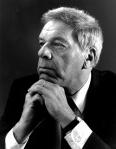 Today, an adventure begins: I am heading to Boston for two weeks to receive training in the Piano Certification Course sponsored by the Gordon Institute of Music Learning (GIML). The training is being given by Marilyn Lowe, author of the Music Moves For Piano method, and Jennifer Fisher.
Today, an adventure begins: I am heading to Boston for two weeks to receive training in the Piano Certification Course sponsored by the Gordon Institute of Music Learning (GIML). The training is being given by Marilyn Lowe, author of the Music Moves For Piano method, and Jennifer Fisher.
This trip is possible thanks to an MTNA Teacher Enrichment Grant. If you’ve been following this blog for awhile, you might know that I am a huge fan of Edwin Gordon’s work. Having the opportunity to experience this training means a great deal to me.
My adventure buddy is Amy Chaplin (of PianoPantry.com). We are driving well over 10 hours today from our respective homes in Indiana and Ohio.

I definitely plan to blog about our experience, but I am unsure whether I will keep up with blogging during the trip or if I’ll catch up after I return. However, I will definitely be posting some tidbits throughout the two weeks on Instagram or Facebook.
Interesting in learning more about Edwin Gordon’s Music Learning Theory (MLT)? Check out this blog post or Tim Topham’s podcast episode with Marilyn Lowe.
[See next post: 2016 GIML Training (2): A Great First Week]




